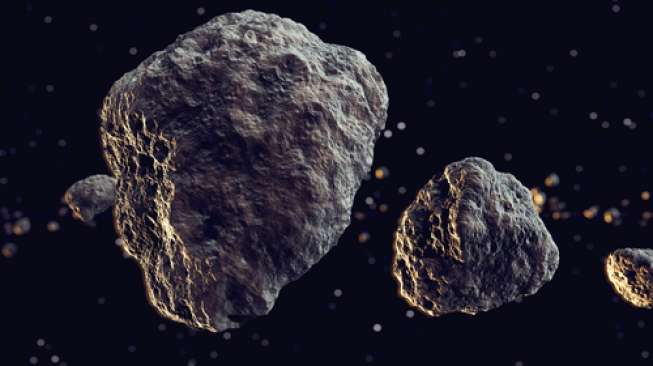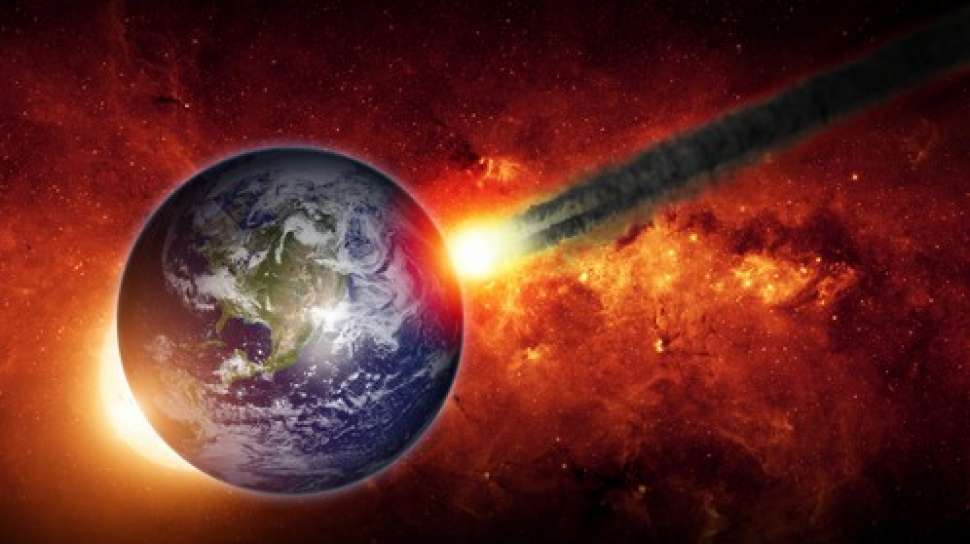Suara.com – Experts have new findings, revealing asteroid Apophis (God of chaos) is less risky than we thought.
According to the European Space Agency and NASA, Apophis stands no chance of hitting Earth in the next century.
This asteroid is often the center of scary stories because it is considered to have a small chance of colliding with Earth.
That is, it is placed on the European Space Agency’s “Risk List”, and is the subject of detailed observation.
Also Read:
Giant Asteroid Predicted to Cross the Earth in March 2021
Apophis, named after the Egyptian god or “lord of chaos”, was first detected in 2004.
After that, researchers suggested that it could hit Earth in 2029 and 2036.
Further research ruled out these impacts, easing concerns.
But experts remain concerned about a possible collision in 2068.
Partly because the asteroid’s big name, as well as its potential danger, has become well known and is regularly written down as a potential hazard that could strike the planet by the end of this century.
Also Read:
The Biggest Asteroid This Year Will Cross the Earth March 21, Is It Dangerous?
The asteroid made a relatively close approach earlier this month, when astronomers had the opportunity to scan it with NASA equipment.
That gave them a better view of the asteroid’s orbit, and made them confident in ruling out that it could have an impact at any time in the next century.
Apophis will fly past Earth in 2029, crossing at a distance of less than 35,000 kilometers and so close that it can be seen with the naked eye.
That distance is one of the reasons scientists are concerned about this year’s newest flyby: coming so close to Earth means it can be affected by our gravity, and it’s hard for researchers to know how it might change its trajectory.
If the asteroid passes through a dangerous “gravitational keyhole” on that 2029 visit, then it may find itself on a journey that will lead it to a collision in 2069.
The new data allow scientists to have a much more accurate picture of it. The trajectory for 2029, narrows the window of possibility and allows them to make sure it won’t get past the all-important keyhole.
“A collision of 2068 is no longer possible, and our calculations do not indicate a risk of impact for at least the next 100 years,” said Davide Farnocchia of NASA’s Center for Near Earth Object Studies (CNEOS), in a statement. Independent, Monday (29/3/2021).

“With the support of recent optical observations and additional radar observations, the uncertainty in Apophis’ orbit has collapsed from hundreds of kilometers to just a few kilometers projected to 2029,” he explained.
The greatly increased knowledge of his position in 2029, he added, provides more certainty about his position.
“So now we can remove Apophis from the risk list,” said Farnocchia.
Having a place on the risk list does not necessarily mean that an asteroid is a significant threat.
An object just needs to have a non-zero chance of hitting Earth.
If an asteroid is placed on the list, researchers continue to better understand its orbit and whether it will collide with our planet in the next 100 years.
If astronomers can then be sure that it poses no threat, it is pulled back from the list.
![Astronomy Illustration. [Shutterstock]](https://media.suara.com/pictures/653x366/2020/05/26/37966-astronomi.jpg)
Apophis refuses to leave the list and shuns scientists’ attempts to get evidence that it will not crash into our planet.
“The discovery of Apophis and the initial work underway to track and understand its orbit, occurred while planetary defense activity was currently in its infancy,” said Juan Luis Cano of the ESA Near-Earth Objects Coordination Center in a statement.
“With Apophis’ removal from the Risk List, we conclude a very enlightening chapter in the history of planetary defense,” concluded Luis Cano.
– .


